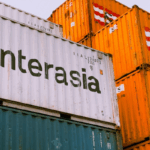With the release of the 2023 edition of the World Competitiveness Ranking, the lens of global scrutiny has once again turned towards an insightful measure of national success. This ranking is not merely a yardstick of financial and economic performance. It transcends GDP and productivity measures to provide an encompassing view of a country’s ability to foster an environment conducive to sustainable value creation. The tool also comprehends the intricate socio-cultural and political dimensions that businesses must maneuver through.
A country’s ranking is a barometer of its quality of life and a compass for international investment decisions. It aids in understanding diverse business environments and evaluates public policy efficacy. Denmark, Ireland, and Switzerland populate the top echelons of this year’s index, while Mongolia, Argentina, and Venezuela are at the lower end of the spectrum.
An exciting narrative emerges as we shift our focus to the Gulf Cooperation Council (GCC) — a political and economic alliance that consists of the Kingdom of Saudi Arabia (KSA), Kuwait, the United Arab Emirates (UAE), Qatar, Bahrain, and Oman. All GCC countries, bar Oman, feature in the index with compelling results.
In a testament to the region’s economic resilience, the UAE has regained its position in the top 10, climbing two spots from last year. The nation’s relentless pursuit of progress has cemented its presence in the top 10 over four of the past five years. Despite slipping from its 5th position in 2019, the current ranking underscores the UAE’s commitment to global competitiveness.
Qatar’s performance is nothing short of impressive. With a leap of six positions from the previous year, it is now seated comfortably at the 12th spot. After a brief period of decline, Qatar is on an upward trajectory, potentially poised to break into the top 10 next year. With a top 5 ranking in Economic Performance and Government Efficiency, Qatar has emerged as a persistent global contender in these crucial categories over the past five years.
Then there is KSA, exhibiting a commendable degree of economic dynamism. KSA’s ascension from the 26th spot in 2019, touching a brief low of 32nd in 2021, to an astounding 17th this year, marks it as one of the index’s fastest climbers. This seven-spot leap since 2022 has propelled KSA ahead of even Germany, which slipped seven places to the 22nd position this year. KSA’s meteoric rise in Economic Performance, from 30th in 2019 to 6th in 2023, and its impressive advance in Business Efficiency – from 25th to 13th in the same period – underlines its remarkable growth trajectory.
Rounding off the GCC narrative, Bahrain ascended five spots to the 25th position, while Kuwait made a debut in the ranking at 38th.
The robust representation of the GCC in the top 20, with three countries holding their ground, is a testament to the region’s ambitious goals and their realization over the past decades. Looking forward, the upward trends suggest that KSA and Qatar might join the UAE in the top 10 in 2024. Concurrently, Bahrain and Kuwait should set their sights on securing a position within the top 20.
The unfolding story of GCC’s progress demonstrates the region’s capability to utilize adaptive governance and widen market access, thereby elevating the living conditions for its populace. It is a clear reflection of the transformational reforms the region has undergone, as well as its commitment to sustainable value creation and competitiveness. Countries like KSA, the UAE, and Qatar have proven that rapid, sustainable growth is achievable with the right blend of robust economic policies, infrastructural development, and social reform. These countries are no longer just oil-rich nations. They are becoming thriving, diversified economies demonstrating what can be achieved when natural resources are supplemented with innovative strategies and an uncompromising commitment to progress.
The performance of the GCC countries in the latest ranking paints an optimistic picture of the region’s future. In the face of the most arduous challenges, these nations have shown remarkable perseverance and have embarked on a promising journey towards greater competitiveness. Their rise is not just beneficial for the region—it is an inspiration for the world.
* Federico N. Fernández is a visionary leader dedicated to driving innovation and change. As the CEO of We Are Innovation, a global network of 30+ think tanks and NGOs, Federico champions innovative solutions worldwide. His expertise and passion for innovation have earned him recognition from prestigious publications such as The Economist, El País, Folha de São Paulo, and Newsweek. Federico has also delivered inspiring speeches and lectures across three continents, authored numerous scholarly articles, and co-edited several books on economics.
Source: We Are Innovation











